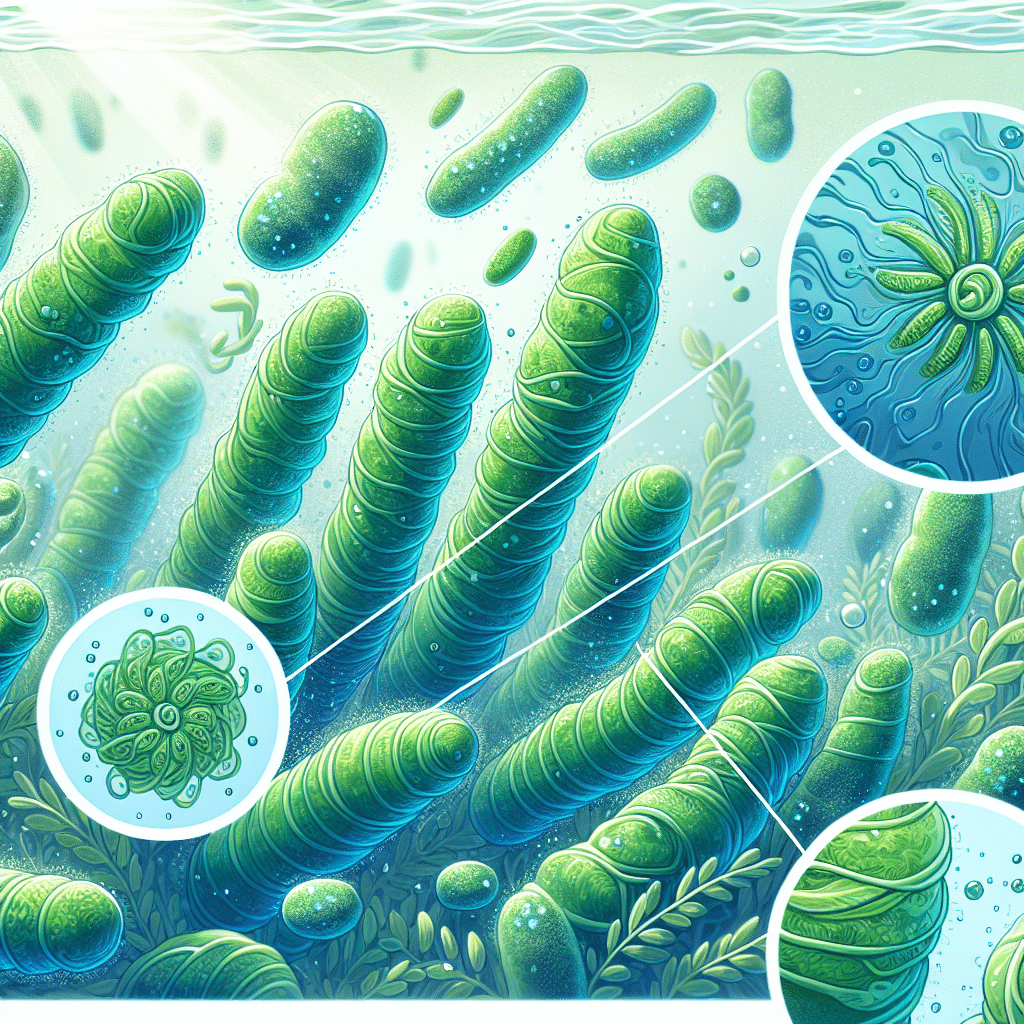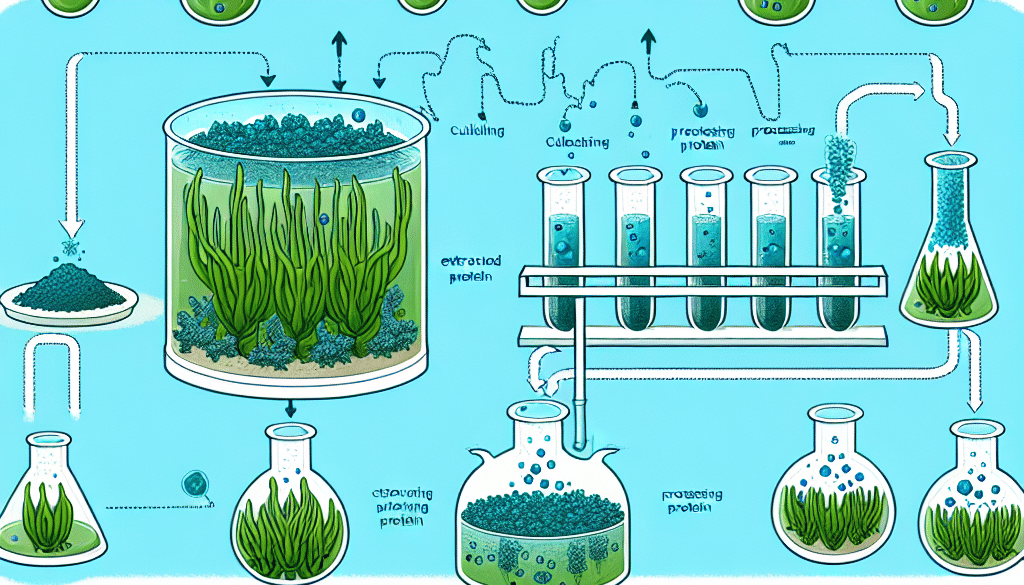Which Algae Is Used For Protein Production?
-
Table of Contents
- Algae-Based Protein: A Sustainable Superfood for the Future
- Understanding Algae and Their Protein Potential
- Key Algae Species Used for Protein Production
- Benefits of Algae as a Protein Source
- Commercial Production and Applications
- Case Studies and Statistics
- Conclusion: Algae Protein’s Role in the Future of Nutrition
- Discover ETprotein’s High-Quality Algae Protein Products
Algae-Based Protein: A Sustainable Superfood for the Future

As the global population continues to grow, the demand for sustainable and nutritious sources of protein also increases. Traditional livestock farming is resource-intensive and has a significant environmental footprint. In the quest for alternative protein sources, algae have emerged as a promising candidate. Algae are not only rich in protein but also have a low environmental impact, making them an ideal solution for future food security. In this article, we will explore which algae are used for protein production and their potential benefits.
Understanding Algae and Their Protein Potential
Algae are a diverse group of photosynthetic organisms that can range from microscopic phytoplankton to large seaweeds. They are found in a variety of habitats, including freshwater, marine environments, and even on land. Algae are known for their rapid growth rates and their ability to thrive in conditions where other crops cannot, making them an efficient source of biomass.
When it comes to protein production, certain species of algae stand out due to their high protein content, which can rival that of traditional sources like soy or meat. Algae protein is complete, containing all essential amino acids required by the human body, and is easily digestible.
Key Algae Species Used for Protein Production
- Spirulina (Arthrospira platensis): This blue-green algae is one of the most popular and well-researched sources of algae protein. Spirulina contains around 60-70% protein by dry weight and is rich in vitamins, minerals, and antioxidants.
- Chlorella (Chlorella vulgaris): Another green algae, chlorella, boasts a protein content of about 50-60% by dry weight. It is also a source of omega-3 fatty acids, fiber, and various micronutrients.
- Dunaliella salina: This microalgae is known for its beta-carotene production but also contains a significant amount of protein. It is often used in dietary supplements and health foods.
- Hematococcus pluvialis: While primarily cultivated for astaxanthin, a powerful antioxidant, this microalgae also serves as a protein source.
These algae are cultivated in controlled environments, such as photobioreactors or open pond systems, to optimize their growth and protein content.
Benefits of Algae as a Protein Source
Algae offer several advantages over traditional protein sources:
- Sustainability: Algae require less land and water than livestock and can be grown in areas unsuitable for agriculture.
- Efficiency: They have fast growth rates and high per-acre yield potential.
- Nutrient Density: Algae are rich in essential nutrients, including vitamins, minerals, and antioxidants.
- Environmental Benefits: Algae cultivation can help sequester carbon dioxide and does not produce methane emissions like cattle.
These factors make algae an attractive option for meeting the world’s protein needs in a more sustainable manner.
Commercial Production and Applications
Several companies around the world are now producing algae-based protein powders and incorporating them into various food products. These include protein bars, shakes, and meat substitutes. The use of algae protein is not limited to food; it also has potential applications in animal feed, cosmetics, and biofuels.
One of the challenges facing the algae protein industry is scaling up production to meet global demand while maintaining quality and nutritional value. However, advances in biotechnology and cultivation techniques are helping to overcome these hurdles.
Case Studies and Statistics
Companies like Solazyme (now TerraVia) and Algenol have made significant strides in algae protein production. Solazyme’s algal flour, for example, has been used in baking mixes and snack foods, offering a gluten-free and high-protein alternative to traditional flours.
According to a report by Credence Research, the global algae protein market was valued at $722.3 million in 2016 and is expected to reach $1,202.5 million by 2025, growing at a CAGR of 5.8% from 2017 to 2025. This growth is indicative of the increasing consumer interest in sustainable and plant-based proteins.
Conclusion: Algae Protein’s Role in the Future of Nutrition
Algae-based proteins offer a viable and sustainable alternative to traditional protein sources. With high nutrient density and a lower environmental footprint, algae such as spirulina and chlorella are leading the way in the protein revolution. As technology advances and production scales up, we can expect to see algae protein become a staple in diets around the world.
Discover ETprotein’s High-Quality Algae Protein Products
If you’re interested in exploring the benefits of algae protein, ETprotein offers a range of high-quality protein products derived from algae. Their offerings are characterized by a neutral taste, non-GMO, and allergen-free attributes, with a focus on sustainability and nutrition.
ETprotein’s commitment to quality and customer satisfaction makes them a top choice for anyone looking to incorporate algae protein into their diet or product offerings. Contact ETprotein to learn more about their protein products and how they can benefit you.
About ETprotein:
ETprotein, a reputable protein and L-(+)-Ergothioneine (EGT) Chinese factory manufacturer and supplier, is renowned for producing, stocking, exporting, and delivering the highest quality organic bulk vegan proteins and L-(+)-Ergothioneine. They include Organic rice protein, clear rice protein, pea protein, clear pea protein, watermelon seed protein, pumpkin seed protein, sunflower seed protein, mung bean protein, peanut protein, and L-(+)-Ergothioneine EGT Pharmaceutical grade, L-(+)-Ergothioneine EGT food grade, L-(+)-Ergothioneine EGT cosmetic grade, L-(+)-Ergothioneine EGT reference grade and L-(+)-Ergothioneine EGT standard. Their offerings, characterized by a neutral taste, non-GMO, allergen-free attributes, with L-(+)-Ergothioneine purity over 98%, 99%, cater to a diverse range of industries. They serve nutraceutical, pharmaceutical, cosmeceutical, veterinary, as well as food and beverage finished product distributors, traders, and manufacturers across Europe, USA, Canada, Australia, Thailand, Japan, Korea, Brazil, and Chile, among others.
ETprotein specialization includes exporting and delivering tailor-made protein powder and finished nutritional supplements. Their extensive product range covers sectors like Food and Beverage, Sports Nutrition, Weight Management, Dietary Supplements, Health and Wellness Products, and Infant Formula, ensuring comprehensive solutions to meet all your protein needs.
As a trusted company by leading global food and beverage brands and Fortune 500 companies, ETprotein reinforces China’s reputation in the global arena. For more information or to sample their products, please contact them and email sales(at)ETprotein.com today.














